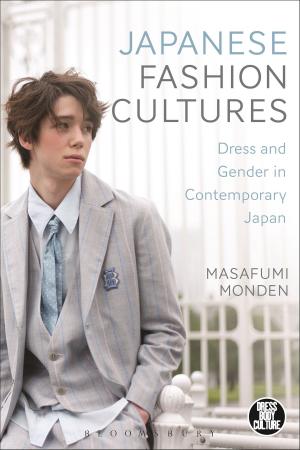Iconoclastic Fervor
Sally Hazelet Drummond's Road to Abstraction
Nonfiction, Art & Architecture, General Art, Collections, Catalogues, & Exhibitions, Biography & Memoir, Artists, Architects & Photographers, Art History| Author: | Hillary Sullivan | ISBN: | 9781938462221 |
| Publisher: | Old Stone Press | Publication: | November 19, 2015 |
| Imprint: | Old Stone Press | Language: | English |
| Author: | Hillary Sullivan |
| ISBN: | 9781938462221 |
| Publisher: | Old Stone Press |
| Publication: | November 19, 2015 |
| Imprint: | Old Stone Press |
| Language: | English |
Sally Hazelet Drummond is believed to be the first female graduate of the Hite Art Institute with a masters in painting in 1952. It was during her study at the University of Louisville that she further explored Abstract Expressionism, a style that started only a decade earlier in the 1940s. In 1953 Drummond, a second-generation abstract expressionist, joined the epicenter of the movement as a member of the Tanager Gallery, one of the leading Tenth Street artists’ co-ops. In the midst of figures such as De Kooning, Reinhardt and Rothko, Drummond refined her style into the dotted starburst patterns that she continued to develop over the course of her life.
While Drummond has been described in several genres, ranging from neo-pointillism to op-art, her work and the exhibition itself is firmly rooted in abstract expressionism. Drummond herself described the movement as a kind of iconoclastic fervor. While history has remembered Abstract Expressionism as being a definitive style characterized largely by wall sized canvases swabbed with gestural marks of the artists, contemporary writers provide a much larger perspective that typifies the avant-gardism of the movement.
Drummond’s artistic career from her Tanager days to date has been a deepening study into her understanding of abstract expressionist practice. However, as the oeuvre of her work has demonstrated, her explorations into abstraction proffer a different albeit not unfounded view of the art movement. Drummond’s views on spirituality and community serve as a foil to much of the machismo and individualist psychology of the abstract expressionist artists. Additionally, Drummond’s use of easel scale, unrestrained use of color and deliberate art making process offer a reframing of the accepted tenants of abstract expressionism. Drummond’s art and her journey into abstraction is also deserving of the self-same description, an iconoclastic fervor.
The exhibition of her art, ranging from the 1940s until 2010, is on display in Gallery X at the Schneider Hall Galleries from November 19th until December 18th, 2015. An accompanying catalogue, Iconoclastic Fervor: Sally Hazelet Drummond’s Road to Abstraction, is also available for purchase from John Clark at Old Stone Press at (502) 693-1506, john@oldstonepress.com
Sally Hazelet Drummond is believed to be the first female graduate of the Hite Art Institute with a masters in painting in 1952. It was during her study at the University of Louisville that she further explored Abstract Expressionism, a style that started only a decade earlier in the 1940s. In 1953 Drummond, a second-generation abstract expressionist, joined the epicenter of the movement as a member of the Tanager Gallery, one of the leading Tenth Street artists’ co-ops. In the midst of figures such as De Kooning, Reinhardt and Rothko, Drummond refined her style into the dotted starburst patterns that she continued to develop over the course of her life.
While Drummond has been described in several genres, ranging from neo-pointillism to op-art, her work and the exhibition itself is firmly rooted in abstract expressionism. Drummond herself described the movement as a kind of iconoclastic fervor. While history has remembered Abstract Expressionism as being a definitive style characterized largely by wall sized canvases swabbed with gestural marks of the artists, contemporary writers provide a much larger perspective that typifies the avant-gardism of the movement.
Drummond’s artistic career from her Tanager days to date has been a deepening study into her understanding of abstract expressionist practice. However, as the oeuvre of her work has demonstrated, her explorations into abstraction proffer a different albeit not unfounded view of the art movement. Drummond’s views on spirituality and community serve as a foil to much of the machismo and individualist psychology of the abstract expressionist artists. Additionally, Drummond’s use of easel scale, unrestrained use of color and deliberate art making process offer a reframing of the accepted tenants of abstract expressionism. Drummond’s art and her journey into abstraction is also deserving of the self-same description, an iconoclastic fervor.
The exhibition of her art, ranging from the 1940s until 2010, is on display in Gallery X at the Schneider Hall Galleries from November 19th until December 18th, 2015. An accompanying catalogue, Iconoclastic Fervor: Sally Hazelet Drummond’s Road to Abstraction, is also available for purchase from John Clark at Old Stone Press at (502) 693-1506, john@oldstonepress.com















